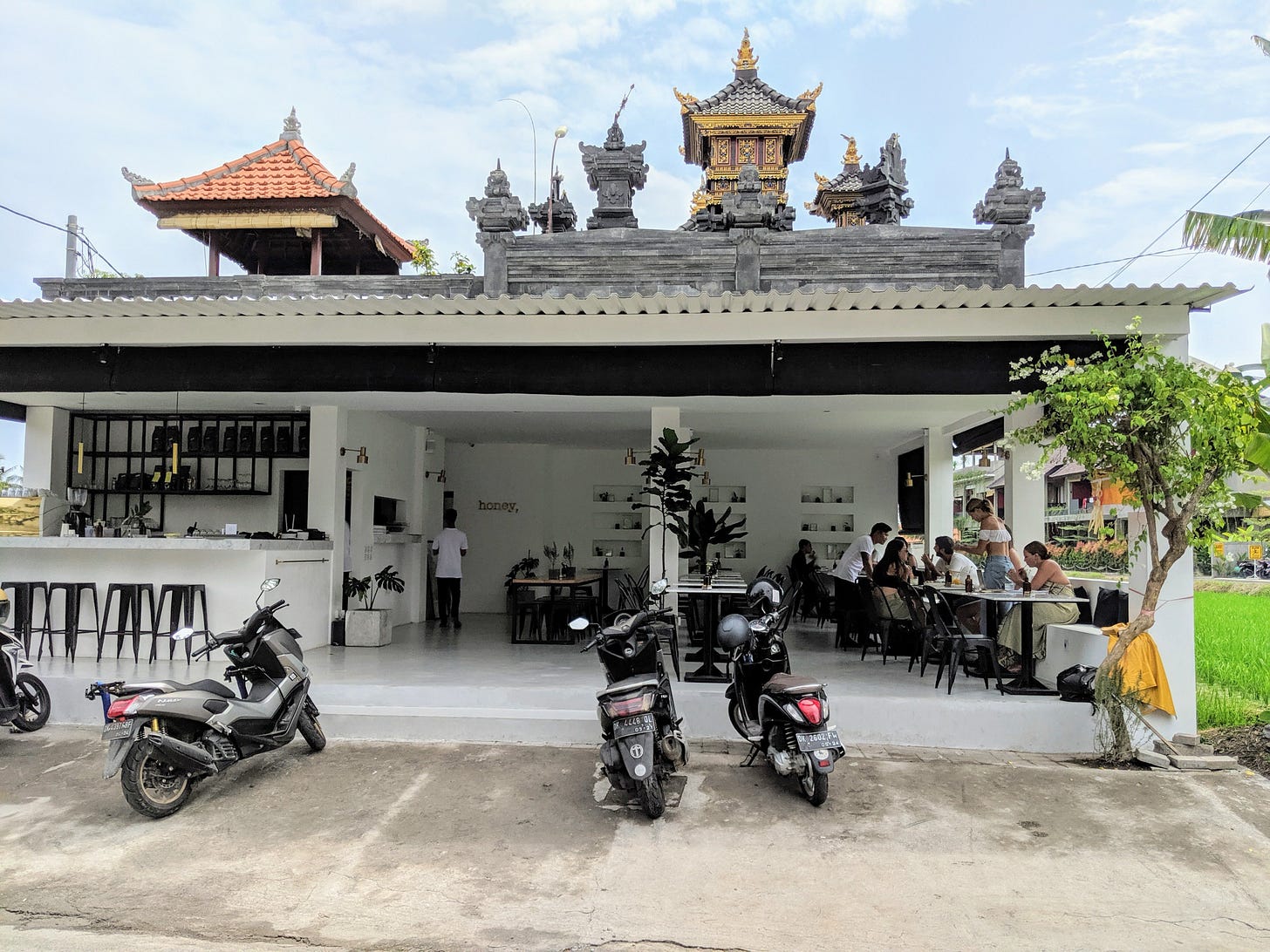Having lived in Bali for 7 years, I’ve been exposed to every possible real estate scheme under the tropical sun. From the infamous Parq Development group that is rapidly transforming the island:
to more modest deals from small developers with 2 or 3 villas to sell. Expats and digital nomads are feverishly diving in to the real estate development game, as the demand is stronger than ever.
Issues such as overdevelopment, aquifer loss, sustainability, and cultural contamination from outsiders has recently lead to a call for a moratorium on certain types of real estate development, especially in sensitive agricultural areas:
The real challenge that Bali faces isn’t an influx of foreign workers or tourists; it’s the lack of regulation enforcement and infrastructure development. Many developers ignore zoning laws, resulting in a chaotic property market that could backfire in the coming years. The solution lies in stricter regulation, better infrastructure, and more government oversight; not in limiting the number of people who come to Bali.
Bali’s future depends on its ability to balance growth with sustainability. The island is not being destroyed by Instagram influencers, but by unethical investors and a lack of government enforcement. To protect Bali’s beauty, culture, and economy, it’s time to take a long-term, responsible approach to development and to diversify into alternative economic sectors and other parts of the island.
Development is not going away, as the magic of Bali is still vibrant and the Balinese people are too strong spiritually for the island to lose its soul — of course they still want their scooters and phones, but they’re not a materialistic culture. Status is more about dedicating physical space on their land in the form of individual temples for their ancestors then it is about what type of vehicles they drive. Having said that, some of the Balinese have a love affair with Harley Davidson motorcycles, and as an American I’m both shocked… and perversely proud.
Photo above is of a Balinese landowner who seems to have the best of both worlds (capitalism & religion). His ancestral temple is now on the roof and in addition he makes passive income by renting his main street space as a restaurant.
Some of you are curious about living part or full-time in Bali, and I would encourage you to continue to pursue those dreams. Can you do it profitably? It’s possible. The hardest (and most profitable) way is to move here and oversee a housing project from scratch. That means everything from buying or leasing land, to finding an architect, a builder, an interior designer, and of course people to help you with the permit and fee parts of the puzzle.
Having others do it just means losing some of the profit you’d be able to make on your own, assuming you can navigate all of the hurdles without too many mistakes. Even if you could manage to do it all by yourself, you still need to figure out the best location.
One option is to invest in Bali’s only real estate fund, called the Kedungu Fund. There’s currently 43 investors and about $4.35 million USD that is devoted to responsible development (see map below, in the upper left corner):
You can watch this 1 hour and 24 minute video of the Kedungu Fund,
or you can listen to these two conversation bots sum it up in 12 minutes (you’ll think they’re real people! To access the audio you’ll need a Google account):
This might be what the bots look like in the new unreality of artificial intelligence.
For transparency I should mention that I’m one of the current 43 investors in the Kedungu Fund (although probably one of the smallest).
As always, let me now your thoughts.
Neill








Interesting piece, Neill. I’ve heard of the Kedungu fund and this reminds me that I need to learn more about recent projections on it. Hope you’re well in Bali-